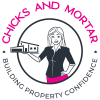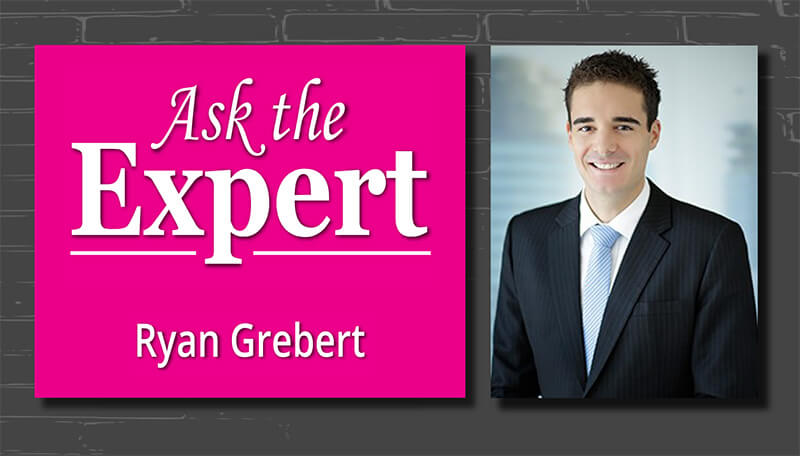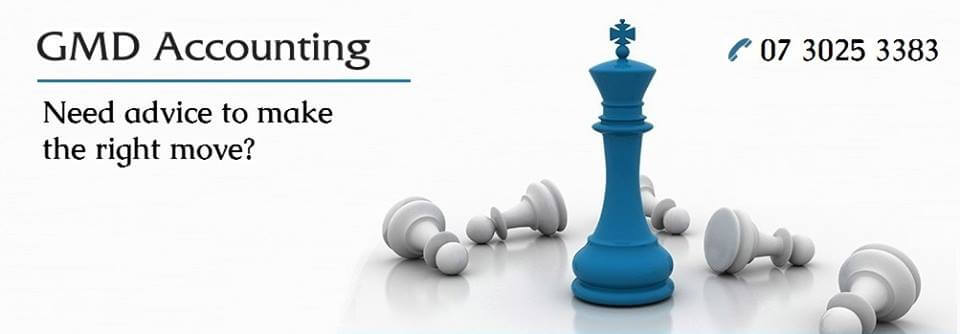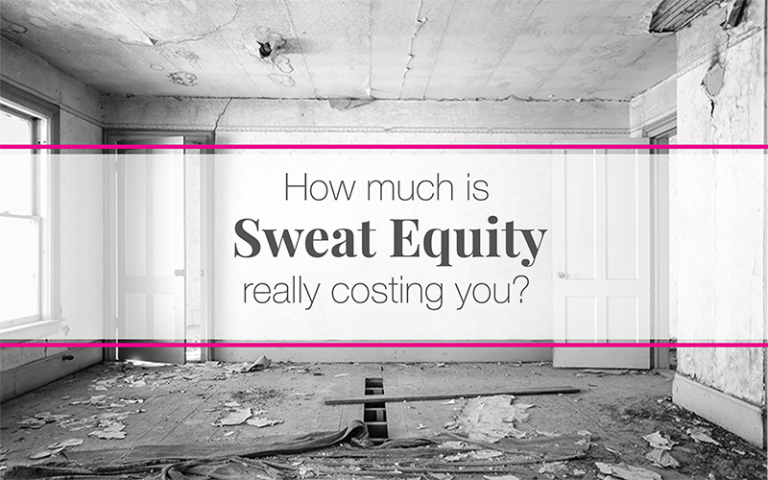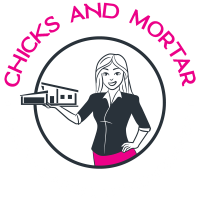With only 2 weeks left of the 2015 financial year, it’s time to think about your tax returns, if you haven’t been already!
Katie caught up with accountant Ryan Grebert to talk about the end of the financial year and what property investors should be doing to get the most out of their tax returns. Ryan gave some great advice and some timely reminders about preparing for the end of the financial year and healthy tax habits you should be getting into.
Listen to the full recording here:
Summary of recording:
Today we are talking to Ryan Grebert from GMD Accounting. Ryan is an industry leading business services accountant. He is a Member of the Institute of Chartered Accountants, is a registered tax agent and Registered SMSF Auditor. Ryan is committed to providing his clients with the processes and strategies they need to achieve optimal results. Possessing a vast amount of experience across a broad range of industries and services, Ryan provides practical solutions for all your taxation and accounting needs.
K: Welcome Ryan.
R: Hi Katie, Thanks a lot for having me today, I appreciate the invitation to come along and talk to property investors out there. Especially those new to property.
K: As we all know, we are coming up to the end of the financial year. What can investors do now before the end of the financial year to get their tax papers in order and get the most out of any tax returns that they have.
R: Going into the end of the financial year is really what we call tax planning. Tax planning is something that you do where you try to estimate what your taxable income is going to be…This gives you basically an indication of the overall income tax expense and it allows you to have a look at some options going into 30 June with some possible transactions that you may elect to take to reduce that income tax expense.
Things that property investors can do, is to look to make Superannuation Contributions. (If you are under the age of 50 you can contribute up to $30,000 per year in superannuation and if you are over the age of 50 you can contribute up to $35,000 in the 2015 financial year.)
That is probably the biggest opportunity to get some sort of a tax deduction leading into June 30 to anyone. Now there are specific rules (for example if you are an employee, meaning that you derive more than 10% of your overall taxable income during the year through employment you have to actually enter a salary sacrifice arrangement with your employer), so you need to plan that out and that’s probably not something that you can do now, only two weeks out from 30 June if you are an employee. But if you’re essential self employed or an investor, then you could potentially look to make a lump sum contribution into super.
Some of the other things specifically that property investors can do…there is always going to be repairs and maintenance that needs to be done to your property. If you did a tax planning exercise and worked out that you were just going to fall over the marginal tax rate, you could look and plan to say well there’s some things like some painting that needs done, there might be some carpet repairs that need done or there might be any sort of repairs. General repairs and maintenance are deductible up front. I mean, you would never go out and just waste money because of a tax deduction. You never get back what you pay, you only get back a percentage of it. And that’s where tax planning comes into it and that’s why you work with a professional to really give you specifics around the numbers and around what sort of value you get out of the expenses.
K: So, if we were looking to do our tax planning and we saw that we were probably going to move up to the next tax rate, could we also prepay some things to really bring down that as well? Say, could we prepay interest for example or any other bills for the property?
R: Yes you can, I mean there’s rules around prepayments so essentially the good thing is that as individuals you can prepay any expense generally up to a 12 month period. So you can’t prepay three years worth of interest for example but you can prepay anything that is going to only be for the next 12 months.
Interest is a bit of a tricky one because that does depend on the loan arrangement that you have with your bank, so definitely, I think that in anything in life you know, you’ve got to ask the question. If you don’t ask the question nothing’s ever going to happen, so, definitely if you think you’re in that position where you think that you could afford to prepay some interest, talk to your bank about it. But I do know that not all banks will necessarily allow you to do that under the terms of your current loan, but that’s something you could definitely talk about.
“in anything in life you know, you’ve got to ask the question. If you don’t ask the question nothing’s ever going to happen.”
K: And I think also you’d would need to consider how it’s going to affect your tax the following year because you’ve already prepaid a lot of stuff it’s then not going to be payable that year unless you prepay again and then it kind of has a knock on I suppose, wouldn’t it?
R: It does, but like you said, you can just prepay it again next year and you only really get the benefit of it this year because this year you are kind of getting a double deduction. If you are paying your interest monthly you obviously get a deduction for all the interest you’ve paid this year, and then if you prepay your interest for the next year you are basically getting a double deduction for interest, then next year if you go in the same prepayment you are only going to get obviously the normal deduction or the normal interest that you’ve incurred over that 12 month period or the financial year.
K: So, coming up to the new tax year is there any tax changes that investors need to know about?
R: Nothing major that is going to be a huge opportunity for anyone in property…a lot of taxation around small business changed in the way small businesses are being taxed.
Some property investors obviously have small businesses as well so that’s definitely something that they need to look at.
K: So it’s really clear then that tax planning is so critical not just at tax time but throughout the whole year so you know what outcome you want to achieve.
R: Definitely, income tax is one of the biggest expenses that any business or any individual has. If you go to look at any expense that you have throughout your life, everyone pays a lot of income tax and planning year in year out to make sure you are being really efficient with how you are assessed for your income tax will drastically reduce the income tax that you will pay over your lifetime.
K: So what kind of claims can an investor make? What kind of paperwork and deductions that they need to compile now ready for the new tax year?
R: If you’ve got a property agent managing your investment property, it does make that end of year process a lot easier because they’ll provide you with reports that tell you your annual income from the property, their annual fees and other minor expenses that you have that are run through their property agency. But on top of that you will obviously have your borrowing costs (that will be written off over 5 years during the first 5 years of taking out a loan on a property), your interest expenses, and then you’ll have to collate your council rates, your insurance premiums, any repairs and maintenance that you’ve taken out on the property, utility bills…and…this one is really important…I see a lot of new clients that we get on that are in property or have property investments often haven’t been advised regarding depreciation on the property…
K: I see that a lot as well.
R: Depreciation is a really powerful tool to use in that because depreciation isn’t necessarily…well it’s not, a cash expense. Depreciation is just writing off the purchase price of the property as a tax deduction. So a lot of people miss out on that and especially with the capital gains discount that most property investors receive when selling the property, it basically enables you to get a tax deduction on part of your purchase price at 100% tax deduction. The downside of it is, that it does actually increase your capital gains by that exact amount that you claim this financial year when you go and sell your property in the future but because of the 50% discount you actually only pay tax on half the amount.
So lets say you got a $10,000 deduction this year due to depreciation on your property, let’s say you go and sell that property in 5 years time, you will be assessed on an additional $10,000 capital gains but when that actually flows through to your tax return, because of the 50% discount, you actually only pay income tax on $5,000. So you get a $10,000 deduction today and you get the tax refund on that, and in the future you’ll pay tax on $5,000. So it’s a pretty good trade off. So depreciation is probably one of the biggest things that people need to make sure that they are fully capitalising on.
K: With only 2 weeks to go until the end of the year, it’s probably unlikely that they are probably going to get a depreciation report done before the end of the year, but can they book one in before the end of the year and then claim that cost of the depreciation report in this financial year?
R: Yes, yes they can. So the deprecation report shouldn’t cost you more than about $700 to $800 for a residential property and yes, that is tax deductible as part of managing tax affairs as an individual, so, yes, you are right, can they can book it in now, make that payment of the $700 – $800 and then claim it as a tax deduction?…yes they can. But the actual depreciation itself will be backdated to the purchase of the property. So essentially they can even go back and amend prior year tax returns (There are rules around amendments and you have to do it within 2 years of lodging your tax return).
K: Ok, so if anyone hasn’t got a deprecation report on then it’s ok, they can get one done and make amendments to their tax?
R: Yes, exactly, but the thing is, there are rules around amendments like I said, you can only go back 2 years from lodgement. So you would need to own the property for 5 / 6 years then they are going to miss out on the first 4 years and the way depreciation works because it generally acellerates you actually get by far the greatest depreciation from year one, year two, year three, year four, year five and it keeps going down and down.
K: Ok, that’s really good to know. Lets just look forward then. So, we’ve got two weeks to go until the end of the financial year and then a new year rolls around. What then, do investors need to do going forward once it ticks over to July 1st?
R: Well, if you are an employee and you’re a property investor and you own the property in your own name or whether it’s jointly owned between yourself and a spouse, generally that property will be geared negatively which will give you a tax deduction which means that you’ll get a refund of a PAYG withholding or some of it that your employer paid for you during the year. So a lot of people that are investing in property generally are refund clients, so they’ll be trying to get their information in as soon as possible because, let’s say you got a $5,000 refund coming to you, then you’ll want to get that $5,000 and then it’s up to you what you do with the money obviously but presuming that you’d be putting that against the debt or some sort of debt that you’ve got. With current interest rates at 4.5% – 5%, it’s better off to be sitting against that debt rather than being with the ATO, because you are saving interest daily if you have it against any debt.
K: Yep. So what are the dates then? The cut off dates to have your returns submitted?
R: It really does depend on the taxpayer individually. As a generalisation, if you lodge your own tax return, if you do eTax or lodge a paper tax return you have to have it done by the 31st of October. If you lodge through a tax agent, you get an extention until the 15th of May the following year.
K: So I can just put all my paperwork into a shoebox and send it off to you? Is that how it works?
R: Ha ha…preferably not. We do generally prefer that the clients are a little bit more organised with their affairs than putting everything into a shoebox. So, a lot of our clients will generally have some sort of spread sheeting of their income and expenses. That’s not a necessity, we have a lot of clients that do just give us receipts and we’re happy to do that. Obviously there is a little bit more work for us and those clients do get charged more than the ones that are very organised and give us everything so we can easily fill in the forms that need to be filled in and we can easily give them advice around what they did last year and what they could have done better.
K: So what I’m really trying to get at is, we don’t really need to have super fancy software like Xero or MYOB that you need a degree to run?
R: Not at all.
K: We can just give you an Excel spreadsheet that’s got everything itemised and laid out?
R: Yeah, exactly and you don’t even need to go to the extent of Excel…we have some (clients) that I would say are quite organised that don’t do any excel spread sheeting but they have a property agent so we essentially get a summary which shows all their income and expenses through the property agent managers and then neatly coallated behind it you would have the four quarterly rates notices, you’ll have their three body corporate levies, you’ll have their four utility bills and then neatly stacked you might have some basic Bunnings receipts for repairs and maintenance are things that they’ve got. And generally they will actually organise with their bank to get an annual interest summary report as well that gives you the interest paid on their loan throughout that year. That’s definitely acceptable but you know, if you are just going throw a whole heaps of receipts at an accountant is probably not the best idea.
K: Well it’s always good to start off with healthy habits isn’t it? If you’ve got one property it’s always good to have clear organisation before you move on to others, because once you get a few properties behind you, the paperwork just becomes huge.
R: Exactly, and it’s really important for you to be organised, I mean to everyone, organisation is a massive part of a successful life and if you’re not organised in any area of your life, that area of life normally suffers. So, same goes with managing an investment property. If you are completely unorganised with that property, one, where we can as accountants look through and say, ok you’ve only given us three rates notices, we know you would have had four can you please provide the additional one. You’ve only got two body corporate levies, you know, we can see the dates on them and you are missing four months of body corporate levies, there should be an additional one, can you please provide it. But things like repairs and maintenance and stuff like that, we can’t, you know, read your mind, we don’t know what happened during the year. We are only going off receipts. So if you don’t provide them to us, you know, you’ll miss out on the tax deduction. And if you’re not organised enough to collate the the receipts properly and give it to us, then I would doubt you would spend the time to really study your tax return and go back and add up all the expenses to make sure they are all there. You would probably just sign it and you might find yourself paying thousands of extra dollars in tax or reducing your tax refund by thousands of dollars because you weren’t organised during the year to manage those expenses that you incurred.
“organisation is a massive part of a successful life and if you’re not organised in any area of your life, that area of life normally suffers”
K: That’s a very good point. So, lack of organisation often leads to extra costs?
R: Without a doubt.
K: So just to recap, coming up to the end of the financial year the key is to know your situation, know what your tax estimate is going to be, know what you can do to get the most benefit out of it and be organised.
R: Definitely. Definitely. I mean the first point we talked about, the tax planning, I think that’s quite an important thing for a lot of people to do. In accounts it comes down to organisation that we spoke about just then and doing tax planning is just a part of having an organised calendar year in regards to your taxation affairs.
K: Fantastic. So for our listeners…if they wanted to talk to you further or speak to you directly about their own tax situations, where is the best place that they can contact you?
R: I can be contacted via email. My email address is r.grebert@gmdaccounting.com.au, so if you wanted to shoot me a question regarding anything at all tax related I would be more than happy to respond. Alternatively if you wanted to have a chat over the phone, our office line is (07) 3025 3383 and ask for Ryan Grebert. I am one of three partners at GMD so make sure you ask for Ryan and I’ll be happy to have a chat with anyone about any of their tax affairs.
K: Ok fantastic. And you guys also have a website?
R: Yes we do. www.gmdaccounting.com.au. You can look up there and read my profile, what my qualifications are and you can also read general comments about our firm….our ethos and how we operate and what we believe in.
Make sure to get in touch with Ryan should you have any questions about your own personal taxation needs or you wanted to talk with him further about this interview.

